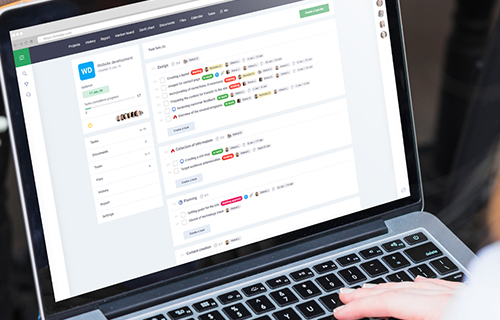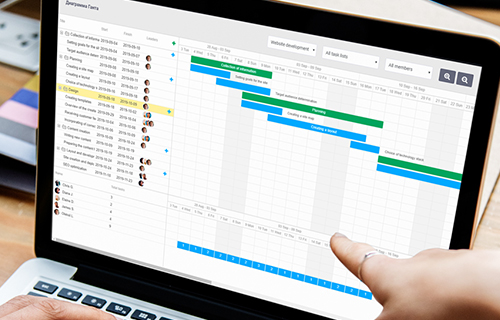How to set a goal in the right way
The key condition of achieving the required result regardless the activity is the right way of goal setting. The accuracy of planning, the efficiency of resources distribution and almost all other tasks depend upon how precisely you set your goal and whether you put it in the right way. However, in practice a lot of people face significant difficulties when formulating a needed goal - this is a rather complicated process that requires from you particular skills, character traits and personal qualities. Moreover, you have to be able to define the true goal in the right way - many people cannot dig deep to primary motivation and thus limit themselves to intermediate stages. At the same time, the art of setting goals in the right way can be developed and trained. And you won’t need to completely change your own mind for that - experience has proven that everything is much simpler.
What is goal setting?
This is a process when a person or a company define what they require and then formulate a clear and simple image or verbal statement.
In other words, before setting a goal you have to define the need at first, and then to convert it to a detailed wording and joint understanding. Further on you’ll be able to set up a goal plan. Therewith you have to understand that goal setting has no practical sense without the next actions. This is some kind of formulating a task for the further activity, setting of an orienting point and you have to focus all your resources and efforts to achieve it.
An important particularity of goal setting is that one can have several goals at a time. That’s why when setting them, you have to establish priorities for each, their interconnections and relations. This will help efficiently distribute resources, optimize time expenditure and achieve more at the same time.
How to set a smart goal?
First of all one has to define a goal in the right way. It should meet the following requirements:
- Be detailed. If your goal is to get some property, then you should think through all its particularities and qualities. The more criteria you have defined for a goal, the higher is the chance that the result will meet your expectations.
- Be measurable. As statistics shows, goals that have a precise quantitative estimation, are achieved quicker. Examples: a certain amount of monthly revenue, one or another number of clients per an accounting period etc.
- Be achievable. Here you should find balance - don’t lower your ambitions and desires and set a really worthy goal at the same time. In this regard you need to take into account the specificity of objective reality, the particularities of social environment, market etc.
- Match the genuine wish. How to set a goal in life in the right way? For this we need to correctly define its cause-and-effect relations. An intermediate stage is often taken for a goal. Namely a wish to earn a particular amount is a way to achieve something. A goal in this case will be a purchase of some property, increase of assets of an enterprise to a particular amount.
- Have time frames. Goals without time limit for their achievement tend to be delayed, postponed. If you define specific time limits, then the closer they get, the more resources of yours you’ll boost to achieve the needed result.
One more important thing is that the goal has to have a correct achievement index. It makes your goal more specific and its result more visual. For instance, adding your surname to the transport vehicle passport will indicate that your goal to buy a car is achieved.
How to achieve goals?
As mentioned above, the goal setting alone doesn’t have any practical result. This is important for defining the orienting point for the further activity. And further actions have to lead you to achieving the goal you’ve set. The certain rules formulated by the psychology specialists help you get what you wish for more effectively:
- Don’t set too many goals at a time. In order to achieve them you’ve got to plan no more than 5-6 of the most important ones and to achieve them within the nearest 90 days. Your brain will better cope with such a number of tasks, and a particular deadline will help you plan your work more efficiently.
- Set a goal and stick to it. Not all tasks have the same value of importance for you personally, therefore you have to define a major one (its achievement would be the most desired) and to reach it. It will become a main motivation for your activity and a support for other less important goals at the same time.
- Record your goal and motivation to achieve it in writing. On the first hand it will allow to confirm and keep its importance, and on the second hand it will be useful for further planning the steps towards the goal. In this case you may use both a simple notebook and a pen, and more functional online tools. In particular you can record all your tasks in the Intasker system, prioritize them and make a separate list of intermediate tasks and actions for each.
- Visualize what you wish for. You can illustrate your goal either graphically, or by using words, or simply imagine it in your mind. This all will help you clearly understand what exactly you’d like to get. Moreover, such a clear vision will play a role of motivation - it’s easier to achieve what you’ve in mind when you know the end result.
Goals have to be both ambitious and realistic, you shouldn’t fritter away your resources and energy for wishes of small importance that won’t make you satisfied. At the same time, when setting goals you need to efficiently estimate your personal capabilities, objective factors of reality and more other details - this will help you easily achieve them and be pleased with yourself. And self-satisfaction plays a major role for person’s productivity, their psycho-emotional state and overall health.






